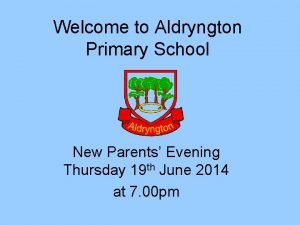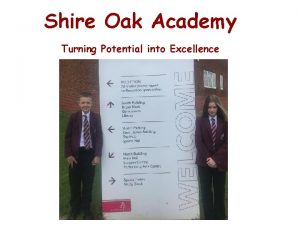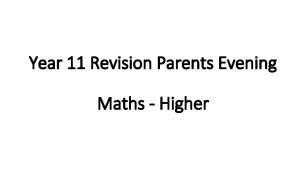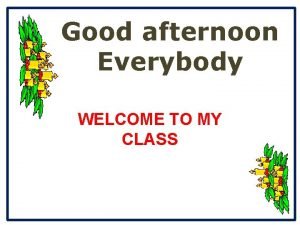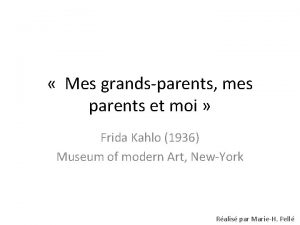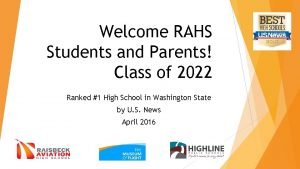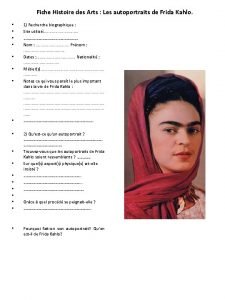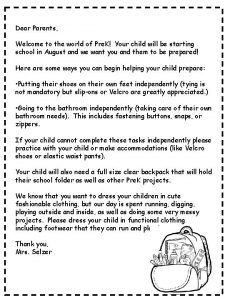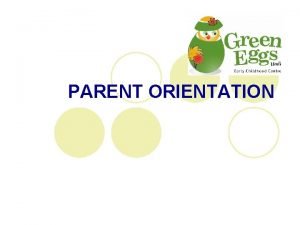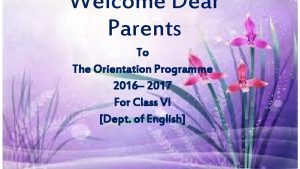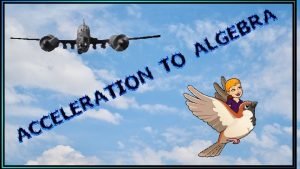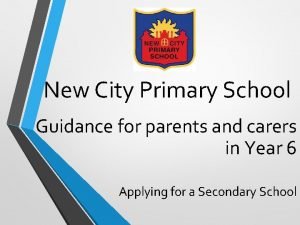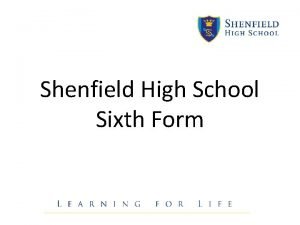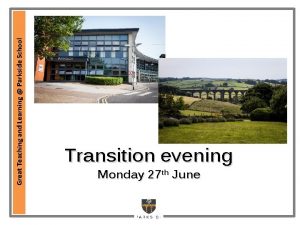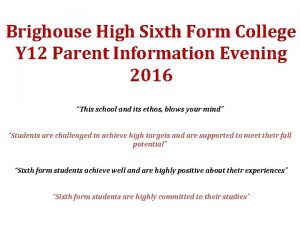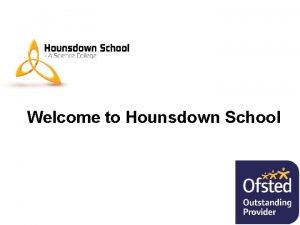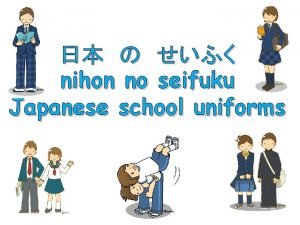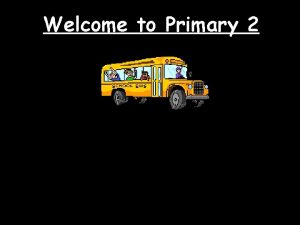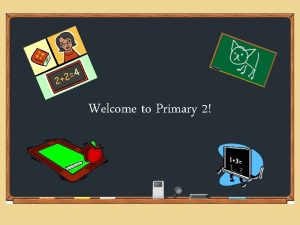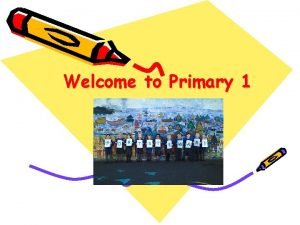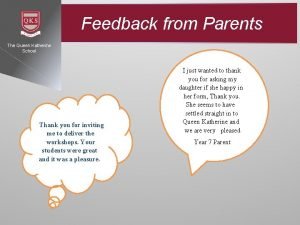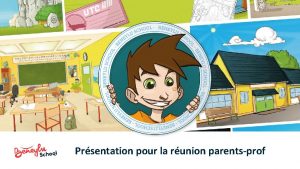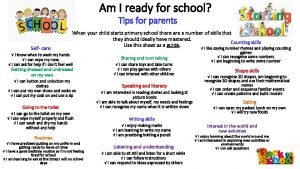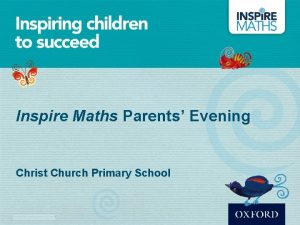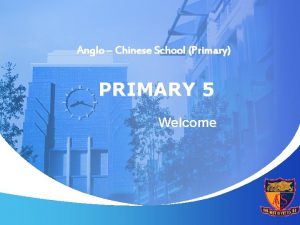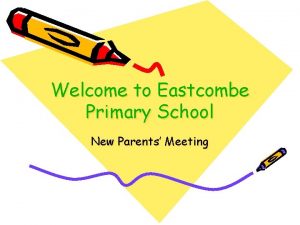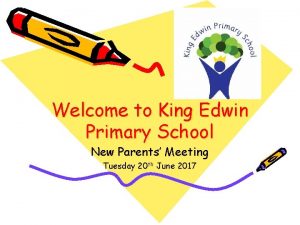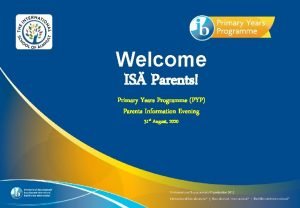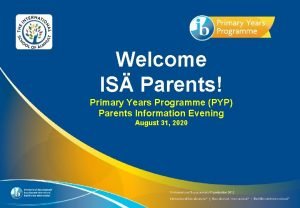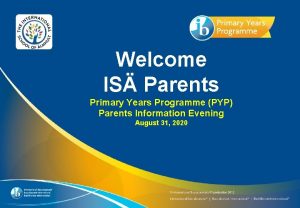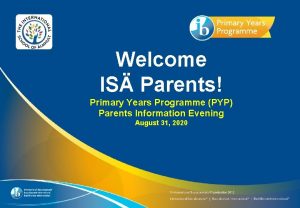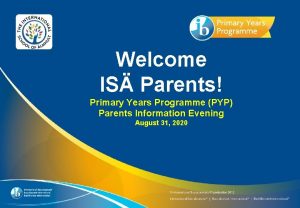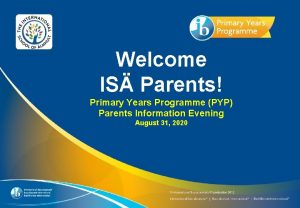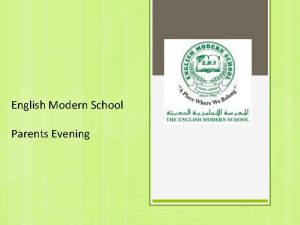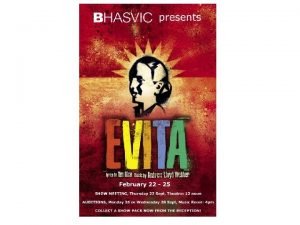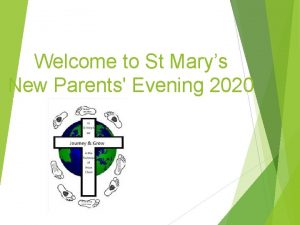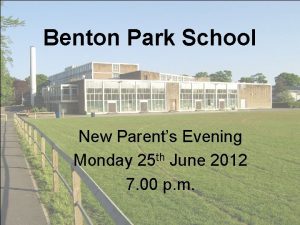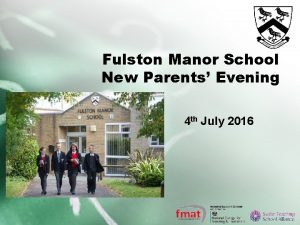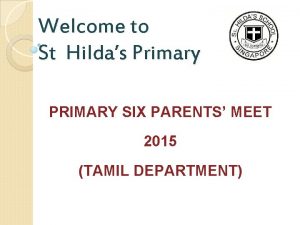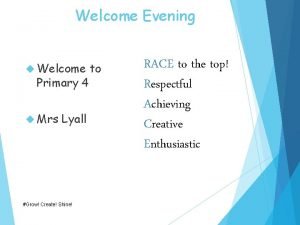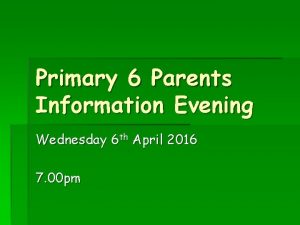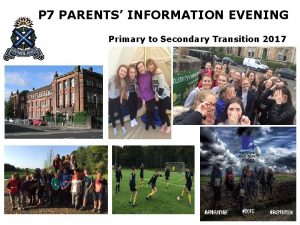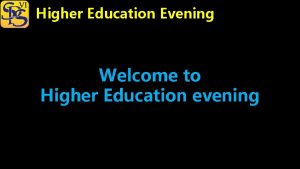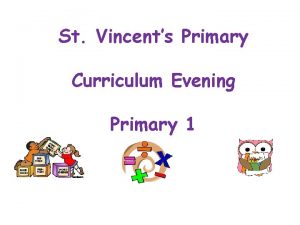Welcome to Aldryngton Primary School New Parents Evening

























- Slides: 25

Welcome to Aldryngton Primary School New Parents’ Evening Thursday 19 th June 2014 at 7. 00 pm

Key staff • Mrs Stewart – Headteacher • Mrs Gregory – Deputy Headteacher • Mrs Tomsett– Acting Lower School Team leader • Miss Friday – Foundation Stage teacher • Miss Nowell – Foundation Stage teacher • Mrs Froud, Mrs Bains, Mrs Calway, Mrs Bunney and Mrs Kiff – Teaching assistants • Miss Benham – Secretary • Mrs Durrant – Administrator • Mrs Seemungal – SEN Leader

Entry to school • All pupils offered a full time place from Wednesday 3 rd September 2014 i. e. 8. 50 am – 3. 15 pm. • Able to take offer on part time basis – mornings only. • This can be changed to full time at half term or end of term. Staggered start offered: • Wednesday 3 rd to Friday 12 th September - mornings only • Monday 15 th to Friday 19 th September – mornings plus a lunchtime. • From Monday 22 nd September full time.

Information Please refer to handouts and booklets you have received for the following information: • ‘Useful information for Foundation Stage’ – details the welcome visits, items your child will need, a typical school day at Aldryngton and communication between school and home. • ‘Welcome to Aldryngton Primary School’ booklet contains general information about all aspects of school. • ‘Parent Pack Paperwork’ – this is information that we require from you by Friday 4 th July. Please hand in to Miss Benham at the School Office.

Early Years Foundation Stage Curriculum (EYFS) Your child will continue to work towards the aims and objectives of the Early Years Foundation Stage curriculum. Children in the EYFS learn by playing and exploring, being active, and through creative and critical thinking which takes place both indoors and outside.

Areas of Learning Prime areas • Communication and Language (C&L) Specific areas • Literacy (L) • Mathematics (M) • Physical Development (PD) • Personal, Social and Emotional Development (PSED) • Understanding the World (UW) • Expressive Arts and Design (EAD)

Preparing for school • Develop their independence, for example being able to dress and undress, tidying up, going to the toilet and managing personal hygiene. • Expressing needs appropriately, for example, communicating their views to others saying “Can I play? ” or asking for help. • Be willing to work and play on their own and with others and try new activities and ideas. • Develop appropriate school behaviours, for example listening to others, sharing and being respectful.

‘ What really matters is making sure a child is able to start school ready to learn, able to make friends and play, ready to ask for what they need and say what they think. These are critical foundations for really getting the best out of school. ’ Sarah Teather, Minister of State, Department for Education since May 2010

The Learning Environment

The Learning Environment

The Learning Environment

The Learning Environment

Assessment • Children will be assessed against the ‘Development Matters’ guidance. • During the year, progress is tracked against age bands (months) across all areas of learning. • At the end of the year, we make a judgment against 17 Early Learning Goals (ELG), where the child is assessed as ‘Emerging’, ‘Expected’ or ‘Exceeding’.

Learning Journey Book A record of your child’s learning which contains: • • • Observations/photos of child-initiated learning. Some adult-directed work (esp Literacy/Maths). Childs comments on their learning. Contributions from home. WOW sheets. Homework challenges.

How you can help us At Aldryngton we place great value on the knowledge you have of your child and welcome your contributions to their learning journey. How you can contribute: • Weekly challenge sent home. • Half termly observations form. • WOW sheets. • We welcome emails as well as paper contributions. • Topic questionnaires.

Example WOW moments ‘T’ was able to share her biscuits today with her brother. She had 4 and gave her brother 2 so they had the same amount. ‘S’ was teaching her little sister how to count to ten and what different colours are in different languages. Whilst on a family day out, ‘J’ spotted and named all shapes he could see, including 3 D.

Supporting your child’s learning at home Some ideas: • Sharing and discussing books. • Allowing them to help with everyday tasks e. g. laying the table, baking, tidying, using scales, filling jugs. • Gardening – watering plants, exploring seeds. • Talking to your child about numbers, colours, words and shapes you see when out and about. • Cutting and sticking from magazines. • Using a computer, mouse and keyboard. • Link activities to your child’s interests. • Use the outdoors!

Phonics • Throughout the school, we teach a dual-approach to phonics using ‘Letters and Sounds’ and the ‘THRASS’ scheme. • We gradually introduce letter sounds as groups using the THRASS cards. • The THRASS cards are essential in supporting your child’s learning. • Further information about our phonics teaching will be given in September.

Visits Two visits for children: Tuesday 24 th June 9. 30 -11. 30 am for Group A and 1. 30 -3. 00 pm for Group B. Wednesday 2 nd July 9. 30 -11. 30 am for Group B and 1. 30 -3. 00 pm for Group B. Children will be met by the school office for the first visit and taken to their classroom. For the second visit they will need to be dropped off at the ‘morning door’. Please refer to signs around the school. They don’t need to wear uniform, but many like to! For each visit they’ll need a ‘healthy snack’ and a water bottle. Following your child’s visits, they will be allocated to a class (Red team or Green team) and a teacher. We will inform you by letter.

Being a parent at Aldryngton • Key to our success is partnership with our parents. • Supporting your child’s learning and development – key aspects outlined in Aldryngton’s home-school agreement. • Sharing your skills and time in school/school trips – extra pairs of hands are very much appreciated! • Member of the PTA (social and fund raising) – Simon Feist – Chair • Work parties for specific activities. • School governor - Ian Head – Chair • Developing the outdoor area – resourcing / links to companies.

Partnership with other agencies • • • School works with a range of agencies to enrich the provision for pupils and parents and to carry its safeguarding responsibilities : Links with other pre-school settings and schools SEN linked staff such as educational psychologist and behaviour support team Linda Warriner - Educational welfare officer Sarah Wroot- Earley Cluster Parent and Family Support Worker based at the Riverdale Children’s Centre Rosemary Hancock – School and Community Nursing Team

Attendance Requests for leave of absence will only be approved in exceptional circumstances. Such requests will only be sanctioned when circumstances require the child/ren to be absent from school and there is no element of choice such as a cheaper holidays. Attendance rates below 85% or persistent lateness trigger an alert. Education welfare officer involvement possible

School lunches Entitled to the ‘Universal Free School Lunch’ in Foundation, Year 1 and Year 2. Please register ! May be eligible for the standard free school meal which also attracts additional funding which is allocated to the school. Currently £ 1300 per child. Please bear this in mind……. Eligibility is cross checked using your NI number which you can include on your registration form for the Universal Free school lunch. Regular checks would be carried out on your behalf by the Local Authority. If you become entitled the school would be informed – this is treated as confidential.

Any questions? Staff will be available here in the hall and in the Foundation Stage classrooms should you have any further queries or information to pass on to us.

Thank you for coming. You are most welcome to visit the Foundation Stage area now.
 Aldryngton primary school term dates
Aldryngton primary school term dates Shire oak academy reviews
Shire oak academy reviews Parents evening apostrophe
Parents evening apostrophe Etwall primary school
Etwall primary school Bushey meads parents evening
Bushey meads parents evening Well welcome to the class everybody
Well welcome to the class everybody Parent de frida kahlo
Parent de frida kahlo Parents parents
Parents parents Fiche frida kahlo
Fiche frida kahlo Welcome to the parents world
Welcome to the parents world Green eggs early childhood centre
Green eggs early childhood centre Welcome dear parents
Welcome dear parents Welcome parents and guardians
Welcome parents and guardians New city primary school
New city primary school Shenfield high school open evening
Shenfield high school open evening Parkside school open evening
Parkside school open evening Brighouse high school open evening
Brighouse high school open evening Hounsdown school uniform
Hounsdown school uniform Welcome welcome this is our christmas story
Welcome welcome this is our christmas story Japanese pe uniforms
Japanese pe uniforms Welcome to primary 2
Welcome to primary 2 Welcome to primary 2
Welcome to primary 2 Welcome to primary 1
Welcome to primary 1 Parents feedback for school
Parents feedback for school Beneylu school compte parents
Beneylu school compte parents Am i ready for school poster
Am i ready for school poster
